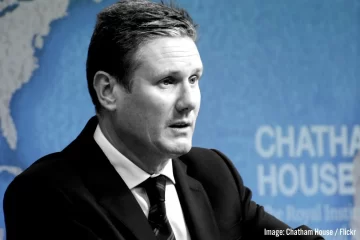“This can’t be real” ‒ four words on the lips of the political establishment as the exit polls flashed up on television screens across the country. By the end of the night, the projections were confirmed: an ‘unelectable’ socialist had denied Theresa May majority control of the Commons. What went wrong? How did the Tories lose the “unlosable” race?
May called this snap general election with a vast advantage in the polls but her shambolic, U-turn-ridden campaign fared poorly against Labour’s positive message of hope, outlined in a popular manifesto. Nevertheless, come polling day an increased Tory majority seemed a probable outcome. The one or two pollsters (including YouGov and Survation) that predicted a gap of three percentage points or fewer – low enough to deny May an overall majority ‒ were dismissed as they required typical non-voters (particularly the young) to come out in high numbers.
But they called the final vote share (42.4 for the Conservatives, 40.0 for Labour) almost exactly right and Corbyn made gains at the Tories’ expense. Many factors contributed to this shock result, including a layer of disaffected former Labour voters returning from UKIP and strong support in the inner cities. However, Labour owes the bulk of its advances to overwhelming support from young people.
The youth have previously demonstrated their support for Corbyn by handing him two crushing victories over ‘moderate’ candidates for Labour’s leadership in 2015 and 2016. This enthusiasm was replicated during the snap general, with long queues outside polling stations in university constituencies on election day. Turnout amongst 18-25-year-olds ultimately came to 72 per cent, a huge increase from the average of 40 per cent who voted across the last four elections. 67 per cent of that youth vote went to Labour, resulting in a decisive swing.
During the race, vast crowds of students and young people flocked to Corbyn’s speaking appearances ‒ eager to catch a glimpse of this unassuming, marrow-growing ‘political relic of the 1970s’. These rallies energised would-be activists and in turn were videoed and seen by millions. More astonishing was the goodwill Corbyn received from the youth culture scene. Whereas the likes of the Times, Telegraph and even the Guardian (until the eleventh hour) spat endless venom at the Labour leader, trendy music magazines such as the NME and Kerrang ran formal endorsements and who could have anticipated ‘Grime for Corbyn’?
As with the grassroots campaigns of populists like Bernie Sanders, Jean-Luc Mélenchon and even Donald Trump, there was far more social media activity around the Labour Party than the Conservatives, with Twitter and Facebook becoming alternative news sources to right-leaning press and television coverage. The significance of this social media buzz was erroneously downplayed by political observers as a mere ‘echo chamber’ that would not translate to votes.
This election has certainly confounded the condescending view that young people simply cannot be bothered to turn up on polling day. We will come in great numbers if given something to believe in. Britain’s youngsters have never experienced a Labour government that did anything other than tailgate the Conservatives. If anything, our scepticism towards the political process reflects the lack of credible alternatives to unbridled capitalism ‒ until now.
Prior to the election, an unnamed Tory MP scoffed in the Huffington Post that “under-30s love Corbyn but they don’t care enough to get off their lazy arses to vote for him!” Not only did young voters get off their “lazy arses”, and but they booted 12 Tory backsides from Downing Street in the process ‒ including from one seat (Canterbury) that has been bright blue for a century!
Accusations of young people falling under the spell of Corbyn’s ‘cult of personality’ overlook the fact that he is hardly the most exciting or dynamic figure ‒ more Mr Chips than Chavez. However, his principled, socialist platform (particularly his promises to end tuition fees and exploitative contracts) became a powerful point of expression for a generation crushed under the weight of underemployment and debt.
As for the Blairites: Jack Straw, Chukka Umunna and Margaret Beckett were all served generous helpings of humble pie on national television when their unelectable leader achieved the first gain in Labour seats since 1997, along with the highest vote share since Clement Attlee. Thus, any hope of ousting Corbyn from the Labour leadership has been dashed for the immediate future but the civil war in Labour will not be over until the left consolidates its grip over the party apparatus.
The hundreds and thousands of radicalised young people emboldened by this result must now descend on their wards and CLPs seeking to ensure that this huge advance for Labour nationally translates to an advance for the left within the party. Our point has been proved: socialist ideas are not only electable but represent the only way forward for Labour. We must build on Corbyn’s vindication.
The Conservatives are currently in an extremely vulnerable position. Even with the DUP, the Tories’ majority has shrunk, they are poised on the brink of a civil war of their own and the impending Brexit negotiations are likely to be calamitous.
There is every possibility that this enfeebled minority government will not last. If there is another election soon, a unified, socialist Labour Party could well complete the work we have started and secure a majority. If that is going to happen, the youth must use their strength of numbers and prepare the groundwork for victory.
Young people have silenced the doubters and made the Tories pay for their complacency with a bloody nose but the fight isn’t over. This election was the true beginning of our rebellion, which will only end when we have consigned the rotten capitalist system to the garbage heap of history.
by Joe Attard, KCL Marxists



